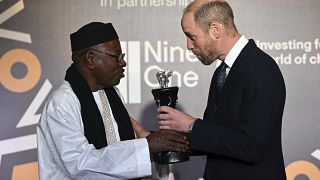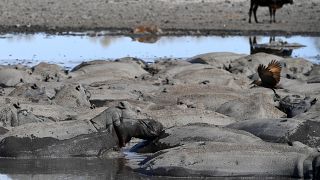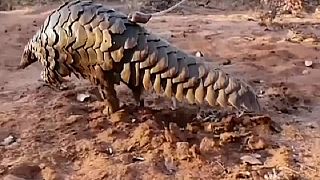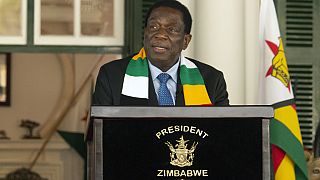Zimbabwe
A pioneer in Chiredzi, southeastern Zimbabwe is trying to change local attitudes towards wildlife.
Tembanechako has spent nearly three months in jail, where he said a program aimed at turning poachers into conservationists changed his outlook.
Hunting is in the tradition of his community, a semi-arid area about 500 kilometers from the capital of Harare.
So when recurring droughts made farming less viable, the man turned to poaching.
“I grew up as a hunter and it is a trade that become intrinsic, before game rangers eventually caught up with me in the animal reserve, hunting was our way of life but we did not know that we were committing a crime by killing animals.”
The father of a large family was caught late last year taking small game in the nearby Save Valley Conservancy, one of the largest private game reserves in Africa.
The only breadwinner resumed his breeding activities when he was freed.
He now earns a leaving selling piece of furniture he makes using tree branches and dry palm tree leaves.
He learned new skills including carpentry in prison.
“I have tried to educate my fellow hunters and village men on the dangers of poaching and I’m proud to say the number of poachers from my village has decreased noticeably," he says.
'I pride myself in spreading knowledge on conserving wildlife, some of my peers have been learning how to craft sculptures and chairs under my wing.”
Worthy of protection
“I began to realize that animals are for the benefit of the entire community, so poaching is a selfish act," Mastick says.
“I can kill a zebra today and eat it or sell the meat, but I am the only one who benefits. But if tourists come to view that same zebra, it is the entire community that benefits from the income.”
READ ALSO: Nigeria turns to former poachers to save key forest
His message is not an easy one. Across Zimbabwe, conflicts between people and animals are increasing.
Humans are invading foristid areas and droughts then push some animals living in those squeezed habitats to raid settlements.
Tinashe Farawo, a spokesman for the Zimbabwe National Parks and Wildlife Management Authority, also works to tackle poaching in the country.
"Poaching is a cancer which we have been trying to deal with over the past few years," he says.
"But if you look at where we have the biggest concentration of animals, the greater part of Hwange National Park, we have not lost any single elephant over the last three or four years, because we are now more visible in the area."
According to Farawo, raising awareness is key to tackling the issue.













02:19
In Ghana, an illegal settlement turned a forest reserve into a criminal city
Go to video
African elephant Pupy arrives in Brazilian sanctuary after 30 years in Buenos Aires zoo
Go to video
South African orphanage rehabilitates injured predator birds
Go to video
Kenya: Belgian nationals plead guilty to smuggling protected ants
Go to video
African conservationists saving vultures from going extinct
01:49
Tourists, wildlife attempt amicable co-existance at Cape Town harbour